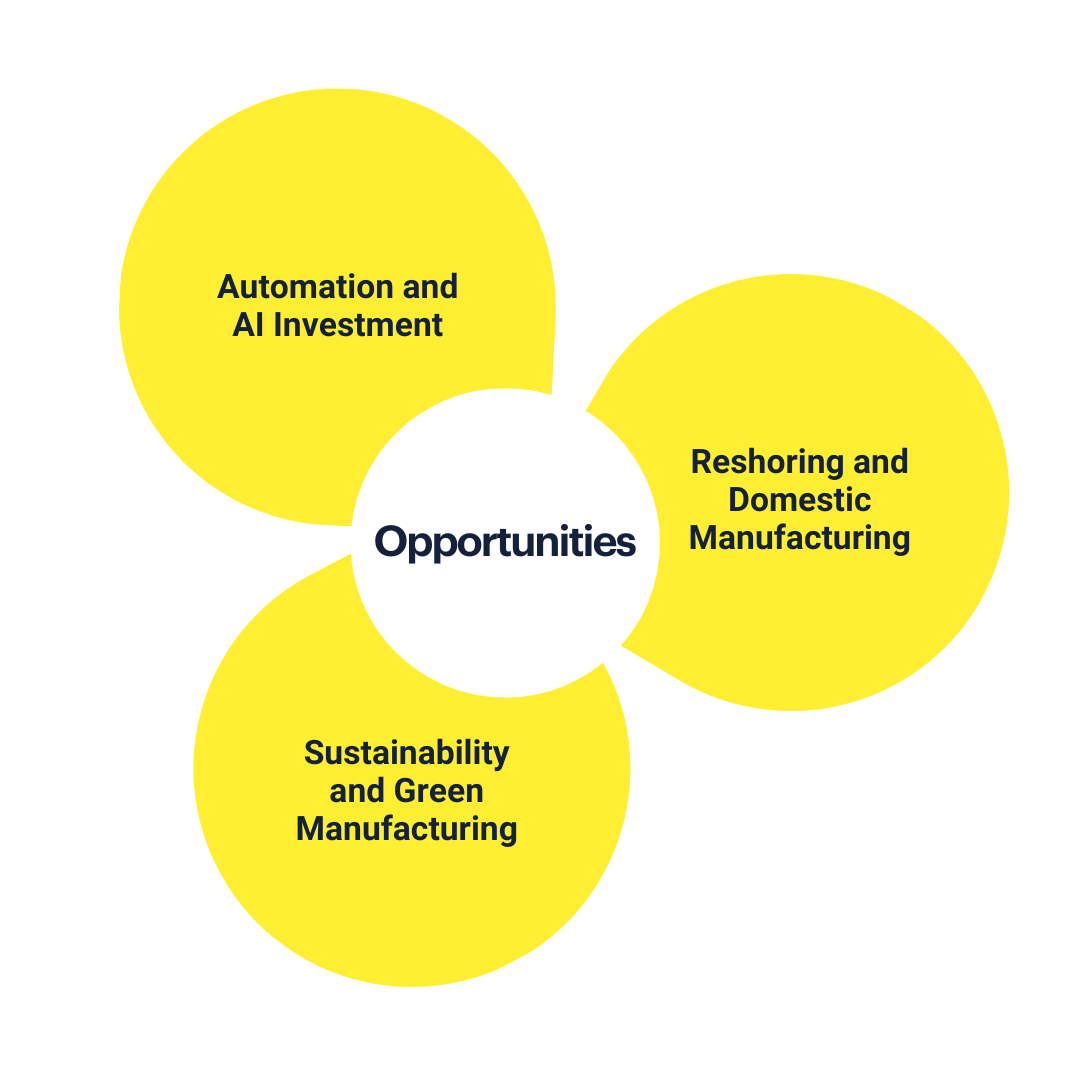Canada’s industrial and automation sectors are key contributors to the national economy, representing a significant share of GDP and employment. As the industry take advantage new technologies and faces economic uncertainties, executive search firms have a crucial role in helping organizations secure the right leaders to navigate these challenges.
Current State of Canada’s Industrial and Automation Sectors
As of 2023, Canada’s manufacturing industry which is central to industrial and automation processes contributed about $200 billion or 10% of the nation’s total economy which is approximately G D P. In the country over 1.7 million personnel are employed in this sector. Investment in Industry 4 0 Technologies is resulting idisruptive in automation and advanced manufacturing such as robotics and artificial intelligence AI.
Despite the growth of these sectors, they are facing rising operational costs, supply chain disruptions, and a shortage of skilled talent, with companies struggling to fill key positions in engineering, robotics, and automation. This has made the role of leadership more critical than ever, as businesses try to innovate solutions to address these challenges.
Challenges Facing the Industrial and Automation Sectors
- Severe Talent Shortage: Canada is currently experiencing a shortfall of skilled labor in industrial and automation roles. According to a report from the Canadian Manufacturers & Exporters (CME), 80% of manufacturers face difficulties finding talent with the necessary technical skills. On the other hand, this gap is projected to widen, with up to 60,000 unfilled positions by 2025. Executive search firms are essential in identifying leaders who possess not only technical expertise but also to develope the ability to attract and retain top talent.
- Technological Transformation: Companies are increasingly relying on automation, AI, and advanced robotics. This makes skilled leadership more important than ever. A survey by KPMG found that 77% of Canadian manufacturing CEOs are focused on investing in digital transformation. Yet, technological disruption brings other challenges. It demands leaders who can manage change and integrate these technologies effectively across their workforce.
- Rising Costs and Economic Pressures: Inflation, increased energy prices, and supply chain issues are driving up operational costs in Canada’s industrial sector. Energy costs alone surged by 15% last year. This places manufacturers under additional pressure. In response, leaders must excel at optimizing costs, all while maintaining operational efficiency and pursuing sustainability goals.
- Sustainability and Environmental Regulations: Stricter environmental regulations are putting Canadian industries under pressure. They need to adopt more sustainable production practices. Leaders must now weave sustainability into their strategic plans. In 2023, 56% of Canadian industrial companies reported that environmental sustainability is a top priority. This highlights the growing demand for executives who are knowledgeable in ESG (Environmental, Social, and Governance) strategies.
Opportunities in the Industrial and Automation Sectors
- Automation and AI Investment: Investments in automation and AI are on the rise as organizations seek to improve efficiency and cut costs. The global automation market is projected to grow at a 9.2% compound annual growth rate (CAGR), reaching $216 billion by 2028. In Canada, businesses need leaders who not only understand these technologies but can also lead digital transformation initiatives.
- Reshoring and Domestic Manufacturing: The pandemic has forced many Canadian companies to reevaluate their supply chains, leading to an increase in reshoring. Bringing production closer to home offers growth opportunities in domestic manufacturing. However, it also calls for leaders who can scale operations, manage complexity, and reduce reliance on foreign suppliers.
- Sustainability and Green Manufacturing: Canada’s commitment to reducing carbon emissions creates opportunities in green manufacturing. As the country moves toward net-zero emissions by 2050, businesses that can innovate in sustainable practices will gain a competitive edge. Leaders with expertise in green manufacturing and circular economy models are becoming increasingly valuable.

The Role of Executive Search in Industrial and Automation
- Filling Critical Leadership Gaps: With a talent shortage in industrial and automation sectors, companies face challenges in finding leaders who can navigate complex technological and operational landscapes. Executive search firms bring the networks and expertise to identify and attract the best talent—both locally and globally.
- Leadership in Innovation and Technology: Staying competitive requires leaders with a strong grasp of AI, robotics, and automation. Executive search firms specialize in finding candidates who can not only implement Industry 4.0 technologies but also drive the innovation needed for future growth.
- Global Talent Sourcing: Given the global scope of the industrial and automation sectors, Canadian companies often need to cast a wider net for talent. Executive search firms tap into international candidate pools, helping businesses remain globally competitive.
- Cultural Fit and Strategic Alignment: Leadership in the industrial sector requires more than technical skills; it demands alignment with a company’s culture and strategic goals. Executive search firms play a crucial role in ensuring that candidates not only fit culturally but are also well-positioned to drive long-term success.
Conclusion:
Canada’s industrial and automation sectors are at a pivotal moment, facing both significant challenges and promising opportunities. With talent shortages, rising costs, and the need for digital transformation, organizations require strong leadership more than ever. Executive search firms are critical in helping these businesses find visionary leaders who can navigate the complexities of today’s market and position their companies for future success.









